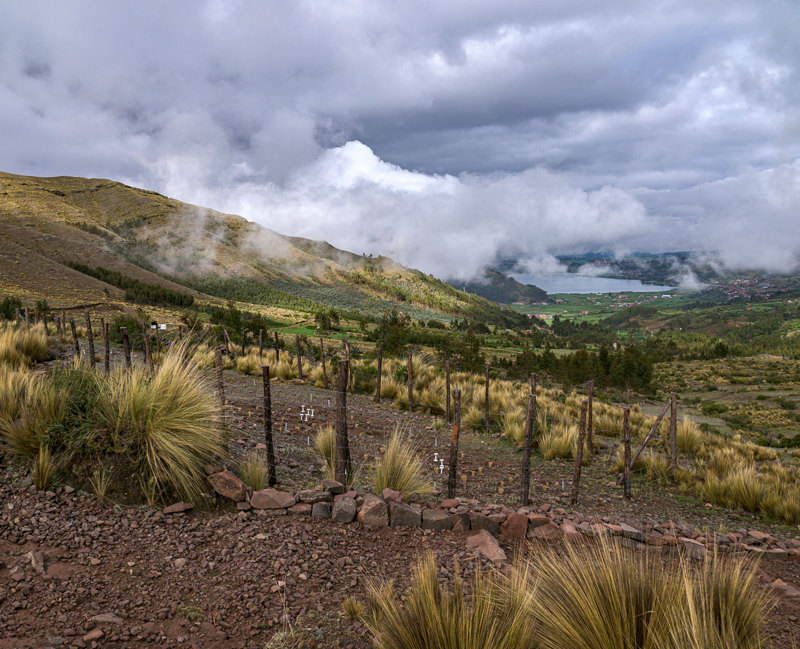
This focus issue will contribute to a better understanding of restoration in mountains by including critical reviews of concepts and approaches that address conditions, practices, challenges, and opportunities for integrated recovery and restoration of mountain landscapes, biodiversity, livelihoods, and cultures.
In the face of intense global changes, mountain social–ecological systems are under increasingly complex pressures, which threaten their resilience, including their capacity to sustain biodiversity and support society with essential goods and services. Beyond the need for better conservation and sustainable management, accumulating signs of a gradual move toward severe ecological and evolutionary tipping points call for actions to enhance the resilience of mountain peoples and landscapes. Efforts to support transitions to mountain social–ecological resilience are needed not only for particular systems, but also for their cumulative services on behalf of global sustainable development.
Accordingly, conserving and recovering mountain landscape functions are key concerns in the 2030 Agenda of the United Nations, as well as being a focus of the UN Decade On Ecosystem Restoration 2021–2030. The UN Decade is a rallying cry for the protection, revival, and even transformation of ecosystems around the world, for the joint benefit of people and nature. And yet, despite the obvious need to engage in the restoration of mountain social–ecological systems, the compendium of literature on methods, approaches, concepts, and applications remains thin and scattered across different journals. In addition, existing research is by no means inclusive of the huge variety of mountain social–ecological systems worldwide, and of the requirements specific to different ecosystem types along elevational gradients and their different sociopolitical and economic contexts and histories.
With this issue, MRD aims to contribute to a better understanding of restoration in mountains by including critical reviews of concepts and approaches that address conditions, practices, challenges, and opportunities for integrated recovery and restoration of mountain landscapes, biodiversity, livelihoods, and cultures. We invite empirical and conceptual papers, both case studies and syntheses, on a wide range of subjects and scales related to restoration in mountains and high-elevation landscapes. We welcome transdisciplinary and multidisciplinary contributions that analyze concepts and practices of restoration within mountain social–ecological systems, over different temporal and spatial scales, as well as their interactions with other telecoupled systems and practices. We encourage authors to explicitly address and investigate inclusion of local communities, policymakers, and scientists in these varied restoration programs, projects, or plans. In particular, we welcome submissions that address how restoration efforts deal with specific ecological problems in the face of current challenges such as (but not limited to) agrarian and energy transitions, growth in tourism, migration, ethnic conflicts, war, and impacts from the recent coronavirus pandemic. Accordingly, MRD invites contributions from scholars and development specialists for its 3 peer-reviewed sections:
MountainDevelopment (transformation knowledge): Papers should present systematically assessed restoration experiences (eg local practices based on traditional knowledge, nature-based solutions and other approaches, national and regional restoration initiatives). In doing so, they should elaborate—based on sound evidence—on enabling and hindering factors for effective restoration and strengthened resilience of mountain social–ecological systems and on lessons learned for broader application. Comparative studies or syntheses of ongoing practices across contexts, as well as comparative work on the policy frameworks for mountain social–ecological system restoration across sectors are highly welcome.
MountainResearch (systems knowledge): Papers in this section should present empirical research, baseline studies, and meta-analyses on degradation and restoration processes in mountains in the context of current dynamics of global change, and how these affect the resilience of mountain ecosystems and people. Papers can also include conceptual contributions, such as perspectives from the social and anthropological sciences on critical assumptions for the successful restoration of mountain social–ecological systems.
MountainAgenda (target knowledge): Papers should propose agendas and priorities for future research, policies, or interventions for mountain social–ecological system restoration that aim to enhance their resilience in the context of global change. They might develop arguments for the importance of including mountain social–ecological systems in the UN Decade for Restoration and in achieving the Sustainable Development Goals. These agendas must draw on the insights gained from systematic and well-referenced reviews of knowledge, approaches, or policies related to restoration of mountain social–ecological systems, and may also be the result of stakeholder consultation and reflection processes.
Davnah Urbach, Julio Postigo, João Carlos Azevedo, Jill M. Belsky, V. Ralph Clark, Yanhong Wu, guest editors, in collaboration with MRD’s Editorial Office, May 2022/Feb 2023